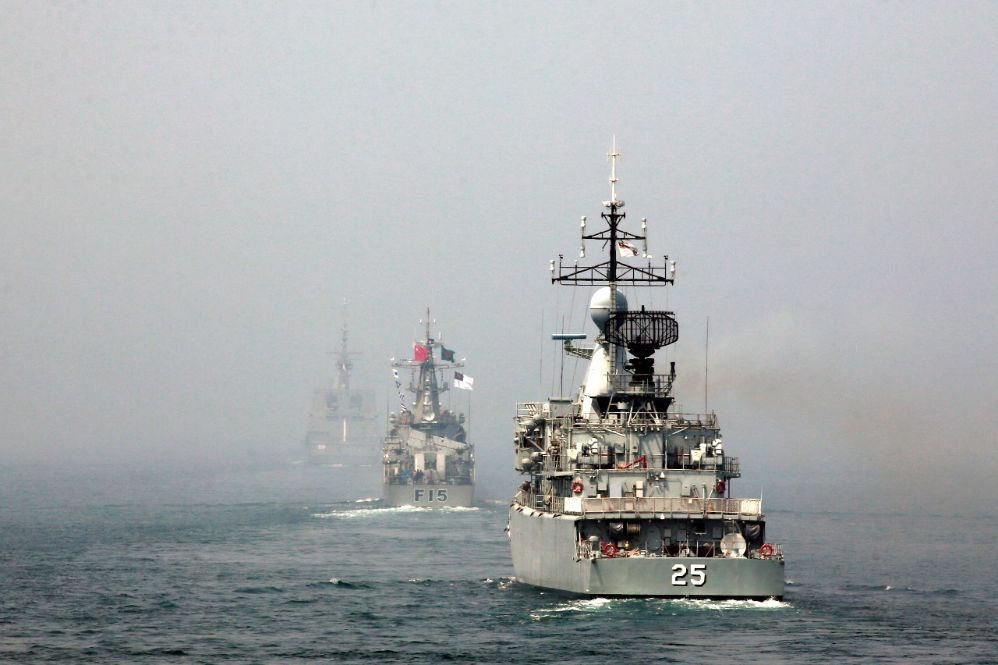It’s not just relations with the United States that are on the upswing. Bangladesh has made significant strides in recent years improving ties with neighboring India. In 2015, the two countries signed a historic land-swap border agreement. A year earlier, Dhaka and Delhi accepted a UN tribunal decision delimiting their disputed maritime boundary.
In 2016 Bangladesh’s shipping minister insisted his country needed “stronger bilateral relations with India to save Bangladesh from any external aggression,” noting that Pakistan was “hatching a conspiracy against us.” India and Bangladesh currently conduct joint military training exercises and in 2017 agreed to further increase defense cooperation.
China’s Belt and Road Initiative (BRI) looms large over the region. Bangladesh, still one of the poorest countries in the world, is naturally eager to promote infrastructure development and regional connectivity. It is seeking large-scale investments where it can find them and, for now, China is one of the only games in town.
However, there is also some skepticism in Dhaka about the broader strategic implications of the BRI, of the pitfalls of becoming ensnared in a Chinese “debt trap,” and of the underhanded tactics employed by Chinese firms. Just last week Dhaka blacklisted the giant Chinese state-owned enterprise, China Harbor Engineering Corporation, after the firm reportedly tried to bribe Bangladesh’s communications minister.
In nearby Sri Lanka, the corporation has been accused of illegally funneling $200 million to help re-elect Sinophile president Mahinda Rajapaksa in 2015. Back in 2006 Dhaka blacklisted another Chinese firm, Harbin Electric International, for its work (or lack thereof) in constructing a power plant in Bangladesh.
Notably, Japan recently won a bid to construct a multi-billion dollar port, LNG terminal, and coal-fired power plant at Matarbari, undercutting Chinese proposals to construct or upgrade ports at Chittagong and nearby Sonadia.
Free and Open Indo-Pacific
With the Trump administration promoting a new Free and Open Indo-Pacific (FOIP) strategy, Bangladesh will have new opportunities to diversify its sources of investment, strengthen ties with the United States, and position itself as a net contributor to security in the Indian Ocean. The latter concept should come naturally to Bangladesh, which is already the world’s largest contributor to UN peacekeeping missions.
In this regard, Dhaka should consider explicitly endorsing the Trump administration’s FOIP strategy, as well as its vision for regional infrastructure. That vision emphasizes transparency, responsible financing and high-quality standards—all things the BRI has been criticized for lacking.
For its part, the Trump administration should consider increasing the number of port calls and high-level defense exchanges with Bangladesh as well as bilateral and trilateral military exercises, potentially to include India and/or Japan. Bangladesh might also be considered for observer status at the annual India-U.S.-Japan Malabar exercises. Tokyo, a key U.S. partner in the FOIP strategy, recently announced it would be deploying “mobile cooperation teams” to Sri Lanka and Djibouti to promote cooperation on maritime security, and Bangladesh could be an ideal candidate for an expanded program.
A Heritage Foundation vice president, James Jay Carafano directs the think tank’s research on national-security and foreign-policy issues.
Jeff M. Smith is a research fellow in Heritage’s Asian Studies Center.

